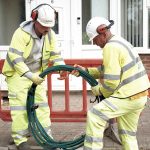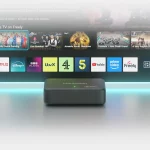UK Government Agrees – Too Much Internet Content Regulation is Bad
The Government has just given its official response to the Culture, Media and Sport Select Committee’s inquiry into Online Safety, which in March 2014 warned that website blocking by UK ISPs was “highly unlikely to be a suitable approach” for tackling porn or violent material on the Internet (here). Broadly the government agrees, but you should still expect more filtering by ISPs in the future.
Firstly it’s important to stress that the report conflates two related but different sides of the same Internet filtering coin. On the one hand we have enforced website blocking, which most of the major and medium sized ISPs use alongside the Internet Watch Foundation (IWF) to block illegal child abuse content.
Advertisement
On the other hand we have network-level filtering (Parental Control) tools, which allows customers of the biggest ISPs to optionally filter out everything from porn sites to social networking (Facebook, Blogs etc.). The Government wants to see smaller ISPs adopting this and claims to be working with the Internet Services Providers’ Association (ISPA UK) to expand its uptake.
Over the past few months the news has been full of over-blocking and filtering errors, which has resulted in masses of perfectly legal and often child-friendly websites being caught up in such censorship systems. At one point or another websites from WordPress to Facebook, Imgur and even those setup to help victims of self-harm and sexual abuse have found themselves at the wrong end of a block.
In that sense it’s good to see the Government this week acknowledge that “content regulation of the internet could give rise to unintended consequences such as stifling the free flow of ideas and expression that lies at the heart of the development of the internet” and reaffirm their commitment to working alongside ISPs, as opposed to forcing through new legislation.
Nicholas Lansman, ISPA Secretary General said:
“ISPA welcomes the Government and Ofcom support of the Committee’s recommendation that “further content regulation of the internet could give rise to unintended consequences such as stifling the free flow of ideas and expression“, and we urge all to keep this principle front of mind when formulating policy in this area.
ISPA argued in its written and oral evidence to the Committee that industry takes its role in helping a create a safe online environment seriously through investment, awareness raising and providing free and easy to use tools and services. ISPA is further pleased that Government recognises online safety requires a joined up approach with law enforcement, Government and wider society.”
In addition, there’s also a recognition that filters can sometimes block the wrong sites and the Government are currently working on a solution that would ensure a “simple reporting route through which this can be addressed“. Some ISPs do put an email contact on their block warnings for reporting incorrect blocks, although a few providers still seem either unwilling or slow to take action when webmasters complain (example). Plus often a webmaster won’t even know they’ve been blocked until somebody tells them about it, meanwhile business could be lost.
Advertisement
It’s also important to remember that no site blocking conducted by ISPs, be they alongside the IWF or through Parental Controls, can completely stop access to a particular website. All such filtering systems only offer skin deep protection and remain incredibly easy to circumvent, which is simply a product of how the Internet works and the reason why even countries like China, Iran and Syria still struggle to stop freedom of speech.
We’ve listed a summary of the Government’s responses to the reports original Internet filtering related recommendations below.
The Government’s Response
12. We believe that, as part of its existing media literacy duties, Ofcom has an important role in monitoring internet content and advising the public on online safety. However, we are anxious to avoid suggesting a significant extension of formal content regulation of the internet. Among the unintended consequences this could have would be a stifling of the free flow of ideas that lies at the heart of internet communication.
Response: We welcome the Committee’s acknowledgement that content regulation of the internet could give rise to unintended consequences such as stifling the free flow of ideas and expression that lies at the heart of the development of the internet. The UK Government defends strongly the successful record of the multi-stakeholder model of internet governance where government joins stakeholders from the private sector, civil society and technical community on an equal footing.
We agree that Ofcom delivers an important role, through its existing media literacy duties and particularly through its annual Children and Parents; Media Use and Attitudes Report, to raise awareness of the ways in which parents and children approach issues related to online safety.
15. Site blocking is highly unlikely to be a suitable approach for adult pornography or violent material much of which is legal (at least if it is unavailable to minors) and which is prevalent on the internet. However, blocking should be considered as a last resort for particularly harmful adult websites that make no serious attempt to hinder access by children.
Response: Government agrees with the Committee that site blocking, while entirely appropriate when it comes to illegal child abuse content, is unlikely to be a suitable approach to restricting access to legal material on the internet. Rather, we believe that the development and implementation of measures that help parents keep their children safe online, such as the free and easy to use family-friendly network-level parental controls which have been introduced by the four largest ISPs and which include age-verification processes, filtered public Wi-Fi where children are likely to be, filtered mobile phones and raising parents awareness of the risks that exist online is a more effective approach to minimising children’s access to such content. As noted in response to Recommendation 10 in respect of video-on-demand (VOD) material, Government intends to legislate shortly to ensure that VOD content that would be rated R18 by the British Board of Film Classification (BBFC) is put behind access controls and to ban the provision of material that would not receive any classification by the BBFC.
16. We welcome the introduction of whole home filtering solutions that prompt account holders with a choice to apply them. We encourage all internet service providers to offer their customers this valuable service. Ofcom should monitor the implementation of this filtering and report back on its level of success and adoption.
Response: Government welcomes the Committee’s endorsement of the introduction of family-friendly network-level parental control tools and would like to acknowledge the efforts of the four largest Internet Service Providers (ISPs) BT, Sky, TalkTalk and Virgin Media, who together constitute almost 90% of the UK’s broadband market, in implementing them.
We agree that other ISPs with domestic customers should consider offering parental control tools and we have been working with the Internet Service Providers Associate (ISPA) to encourage them to do so. We understand a number of the other providers are currently actively working on the development of such tools and we look forward to these being rolled out over the coming year.
Ofcom is currently working with the four largest ISPs on a report, which we expect to be published in the coming months, on how far the ISPs have delivered on the commitments they have made on introduce family-friendly internet tools. In addition, Government asked Ofcom to oversee this work, to judge how well the ISPs are doing and to report back regularly.
18. We agree that the availability and performance of filtering solutions must be closely monitored, both for efficacy and the avoidance of over-blocking. It should also be easy for websites inadvertently blocked to report the fact and for corrective action to be taken.
Response: Government agrees with the Committee that websites which are inadvertently filtered should have a simple reporting route through which this can be addressed.
A UKCCIS Working Group, Chaired by Dave Miles of the Family Online Safety Institute (FOSI) and including representation by the ISPs, charities and content providers has been set up to consider this issue.
The four largest ISPs each has in place processes for customers or site owners to inform them of sites which may have been either inappropriately classified or inadvertently filtered. However, the Working Group is looking at the opportunities for a centralised process and common procedures across the ISPs which are easy to understand and use.
Mark is a professional technology writer, IT consultant and computer engineer from Dorset (England), he also founded ISPreview in 1999 and enjoys analysing the latest telecoms and broadband developments. Find me on X (Twitter), Mastodon, Facebook, BlueSky, Threads.net and Linkedin.
« UPDATE UK Government Targets 100% Superfast Broadband Coverage
















































Comments are closed